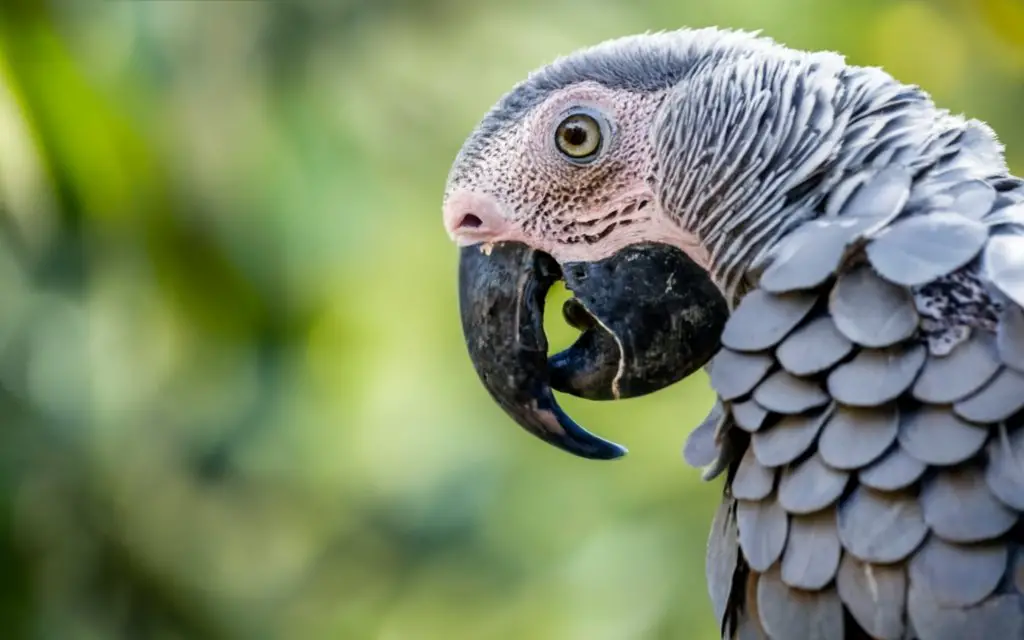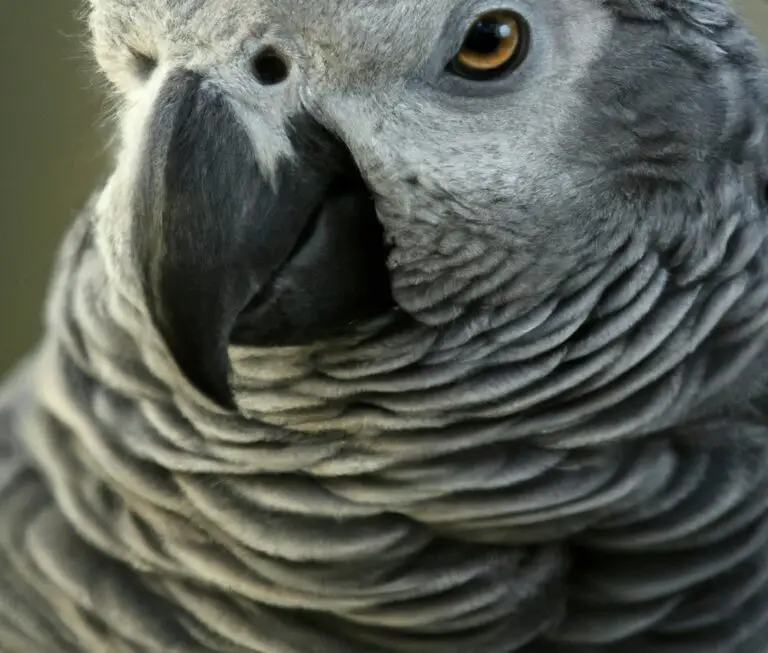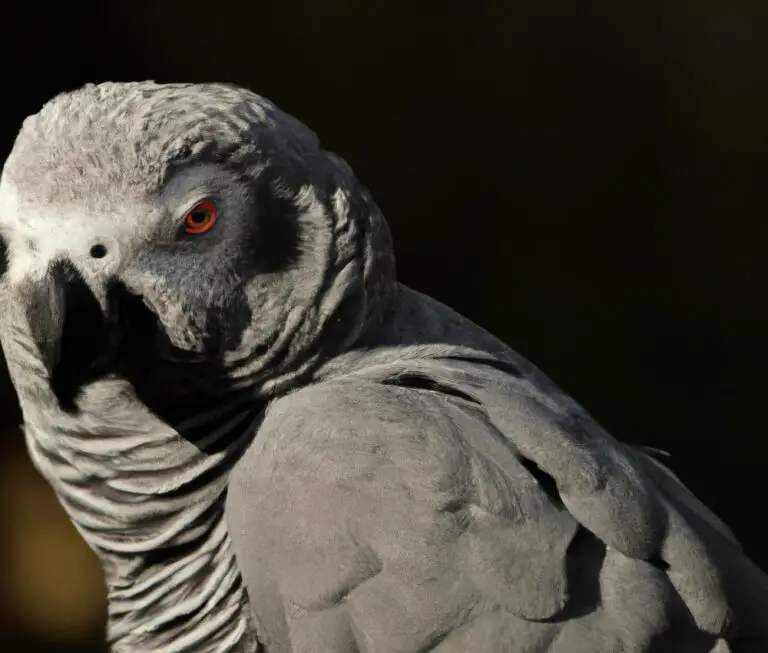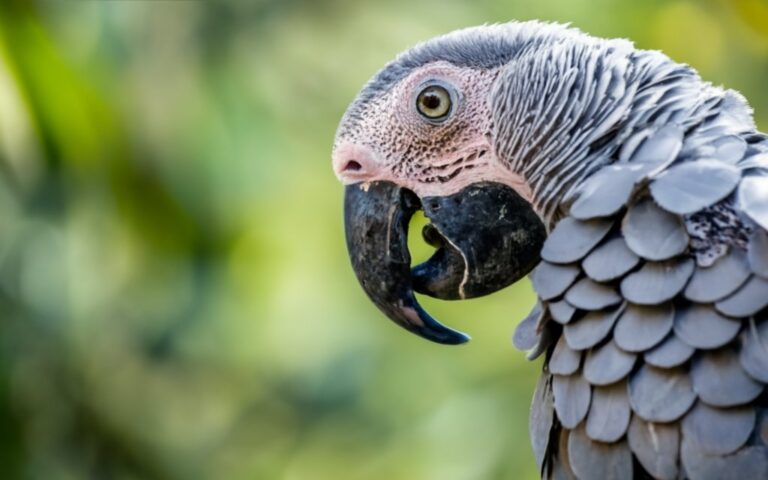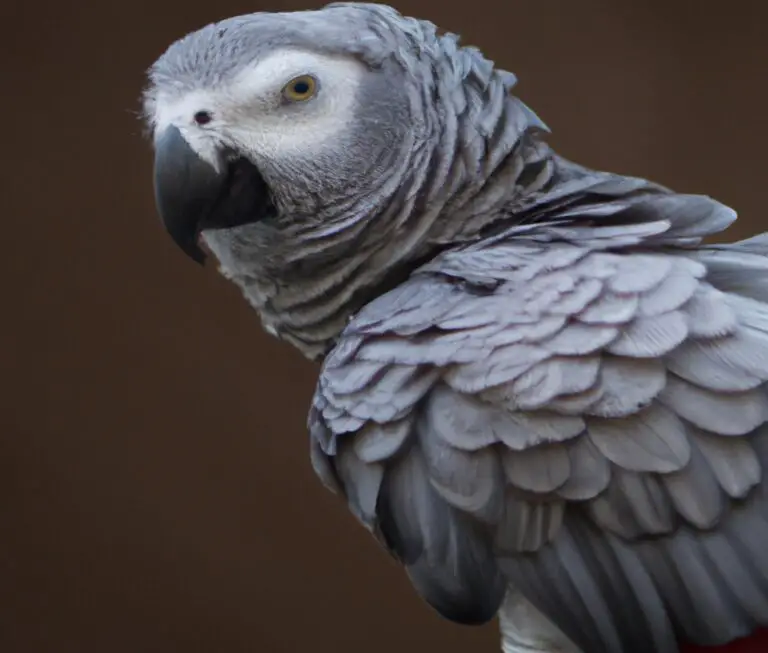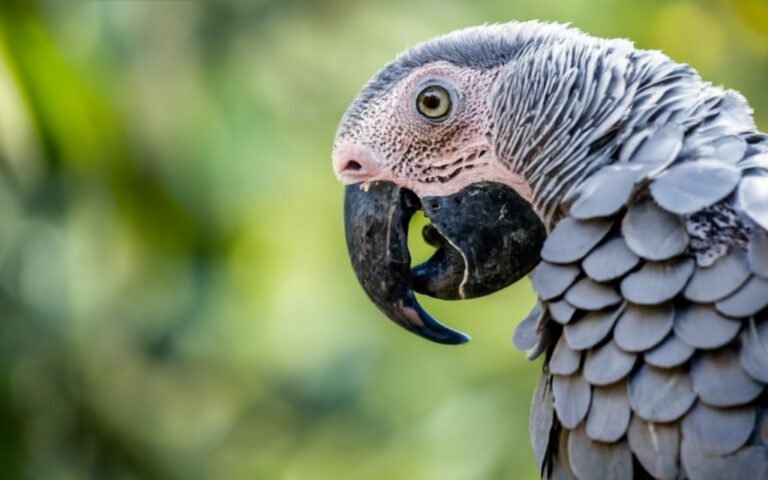How Many Eggs Can An African Grey Parrot Lay?
Key Takeaways:
- African grey parrots typically do not lay eggs in captivity unless conditions closely resemble their natural habitat.
- When African grey parrots do lay eggs, they usually lay between two to four eggs in a single clutch.
Are you curious about how many eggs African grey parrots can lay?
Well, get ready to be amazed by these intelligent and fascinating creatures.
African grey parrots are known for their stunning plumage and remarkable mimicry skills, but their breeding habits are just as intriguing.
In this article, we will dive into the reproductive cycle, factors affecting egg production, and the average clutch size of African grey parrots.
Whether you’re a parrot enthusiast or simply interested in learning more about these incredible birds, you won’t want to miss this captivating insight into the world of African grey parrots and their egg-laying abilities.
| Species | Egg Laying |
| African Grey Parrot | Usually lays 2 to 6 eggs in a clutch |
African Grey Parrots: An Introduction
African Grey Parrots are highly intelligent and social birds that are known for their exceptional talking abilities. They are popular pets due to their engaging personalities and captivating beauty.
General Information About African Grey Parrots
African Grey Parrots are highly intelligent birds known for their exceptional speaking abilities.
They have a lifespan of up to 50-60 years and are native to the rainforests of West and Central Africa.
These parrots are medium-sized with gray feathers, a red tail, and a distinctive black beak.
They are curious, social birds that require mental stimulation and social interaction.
African Grey Parrots are popular pets but require a lot of attention, care, and mental stimulation to thrive.
Physical Characteristics of African Grey Parrots
African Grey Parrots are known for their unique physical characteristics.
They have a medium-sized body with a short, square-shaped tail.
Their feathers are predominantly grey, with lighter shades on their face and darker shades on their wings and back.
They have a large, strong beak that helps them crack open nuts and seeds.
Their eyes are a captivating shade of yellow, and their feet are strong and capable of gripping branches.
Overall, African Grey Parrots have a distinct appearance that sets them apart from other parrot species.
Breeding Habits of African Grey Parrots
African Grey Parrots have unique breeding habits.
Reproductive Cycle of African Grey Parrots
African grey parrots have a unique reproductive cycle. They reach sexual maturity at around 4 to 6 years of age.
During the breeding season, which varies based on their geographic location, female parrots lay an average of 2 to 4 eggs in a single clutch.
The incubation period lasts approximately 28 to 30 days, after which the chicks hatch. The parents take turns incubating the eggs and feeding the chicks until they are fully independent.
Breeding pairs usually have a rest period between clutches to regain their energy.
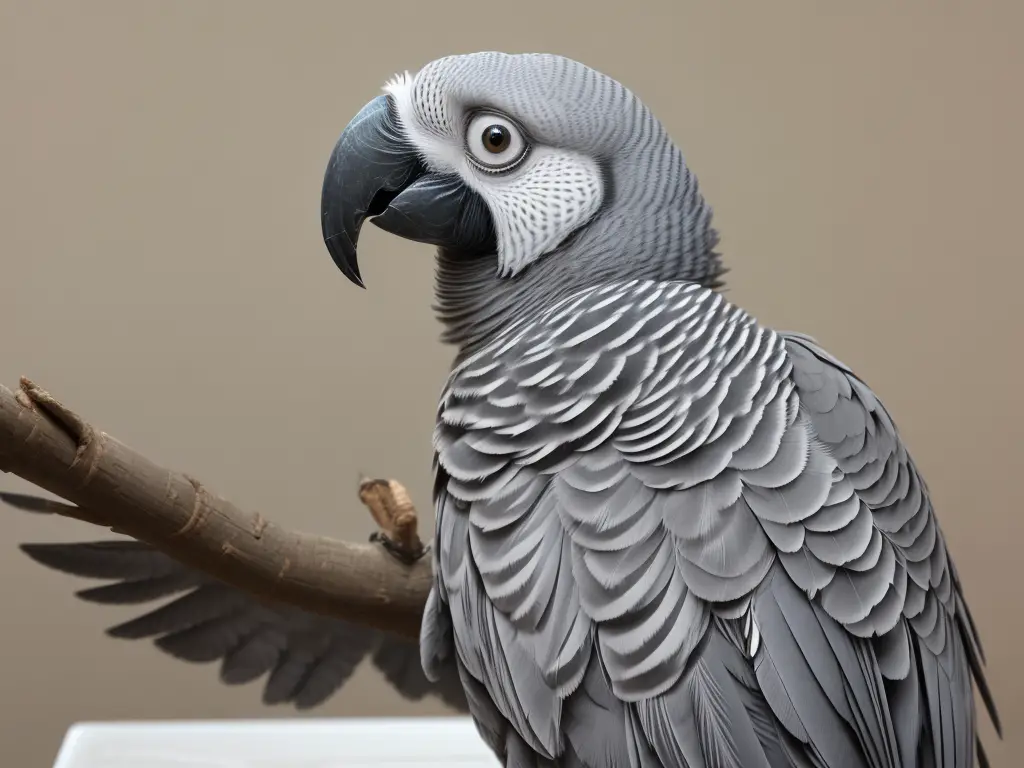
Factors Affecting Egg Production
Factors affecting egg production in African Grey Parrots can include the age and health of the parrot, their diet and nutrition, environmental factors such as lighting and temperature, and the presence of a suitable nesting area. It is important to provide a well-balanced diet and create a comfortable environment to promote optimal egg production.
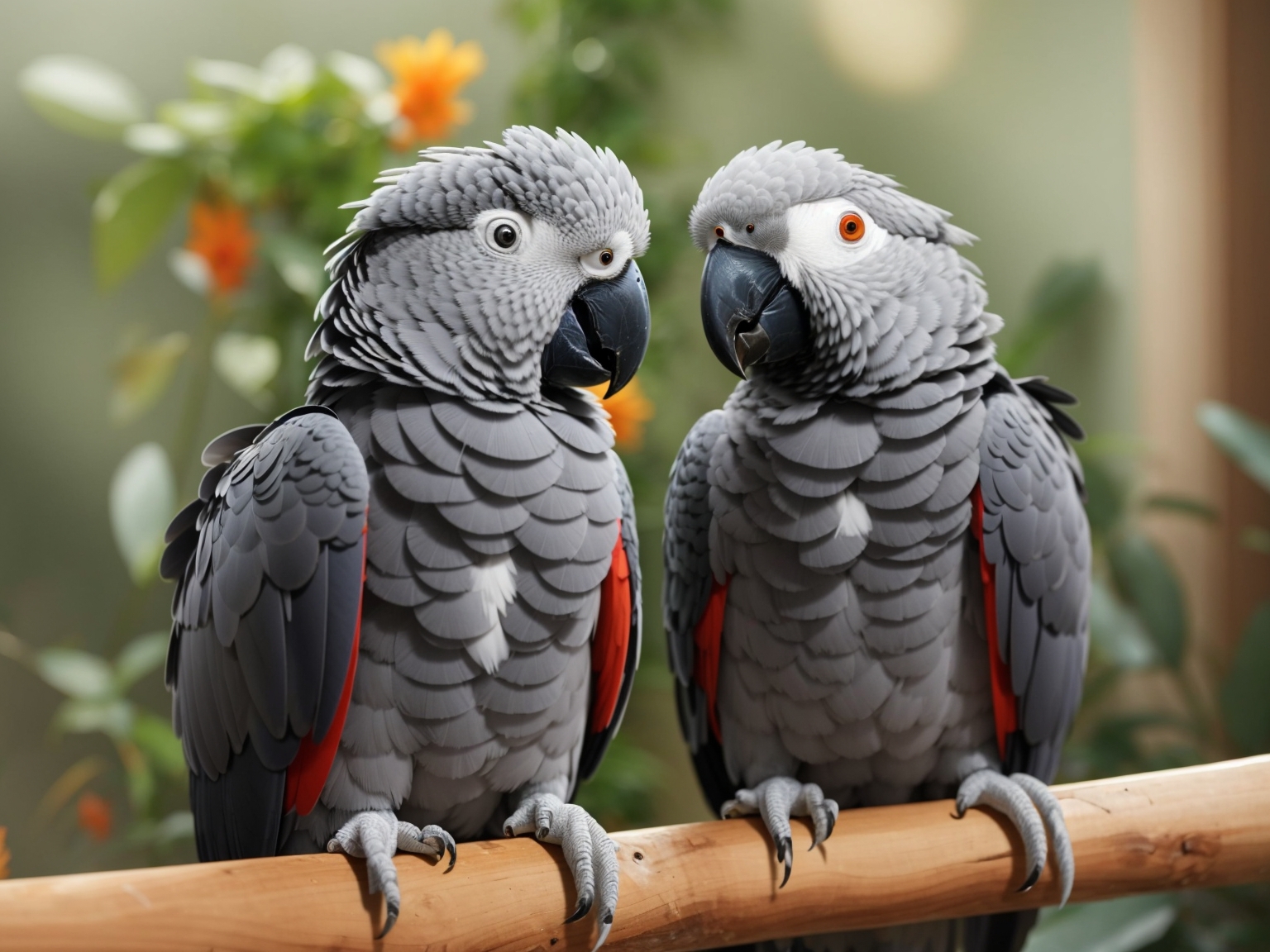
Average Clutch Size of African Grey Parrots
The average clutch size of African Grey Parrots is usually between 3 to 5 eggs. However, it is important to note that clutch sizes can vary depending on various factors such as the individual bird, environmental conditions, and breeding history.
Each bird may have slightly different clutch sizes.
Egg Laying Process in African Grey Parrots
African Grey Parrots typically lay eggs once or twice a year.
Incubation Period of African Grey Parrot Eggs
The incubation period of African Grey Parrot eggs typically lasts about 28-30 days.
During this time, the parent parrots take turns sitting on the eggs to keep them warm and ensure proper development.
It’s important to provide a suitable nesting environment and minimize disturbances to ensure successful incubation.
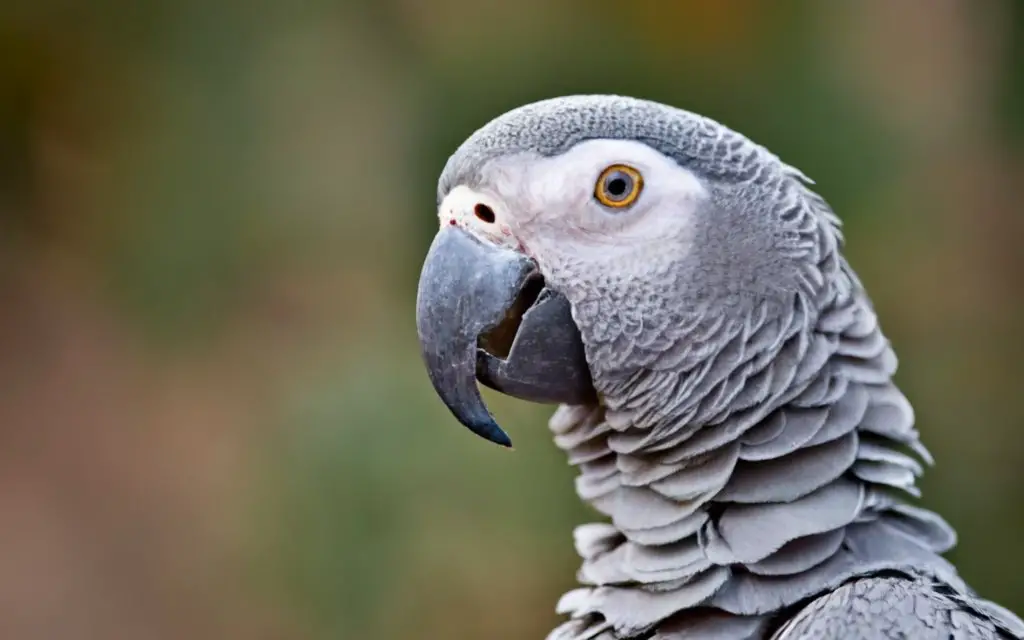
Nest Preparation and Egg Care
Nest preparation is vital for African grey parrots to lay their eggs.
They will use materials like wood chips or shredded paper to create a cozy and safe environment.
Female parrots diligently care for their eggs, keeping them warm and turning them regularly.
It’s important to provide a suitable nest box with proper bedding materials and monitor the temperature and humidity levels to ensure the health and well-being of the eggs.
Hatching and Caring for the Chicks
After an incubation period of about 28-30 days, African Grey Parrot eggs will hatch. The parents play a vital role in caring for the chicks, providing warmth, protection, and feeding them regurgitated food.
It’s important to provide a safe and comfortable environment for the chicks, with appropriate temperature and humidity levels.
They should also be offered a balanced diet that includes a mix of fresh fruits, vegetables, pellets, and seeds. Monitoring their growth and development is crucial, and any concerns should be addressed by a veterinarian.

Frequency and Timing of Egg Laying in African Grey Parrots
African Grey Parrots typically lay eggs once a year, usually during the spring or summer months.
Seasonal Patterns of Egg Laying
African Grey parrots typically exhibit seasonal patterns of egg laying, with the breeding season occurring during specific times of the year.
These birds tend to lay eggs during the spring months, as this is when the conditions are most favorable for breeding and raising chicks.
Environmental factors such as temperature, daylight hours, and food availability play a significant role in stimulating the breeding behavior and egg production in African Grey parrots.
However, it’s important to note that individual birds may vary in their nesting and breeding preferences.
So, while seasonal patterns are common, there can be some variation among parrots.

Factors Influencing Egg Laying Frequency
Factors influencing egg laying frequency in African Grey Parrots include age, health, diet, environment, hormonal changes, and social factors.
Older birds may lay fewer eggs, while a nutritious diet and a stable environment can support regular egg production.
Hormonal fluctuations and the availability of a suitable mate also play a role.
Breeding Age and Lifespan of African Grey Parrots
African Grey Parrots reach breeding age between 3 and 5 years old.
They can live for up to 50 or even 60 years in captivity, with some living even longer.
Their lifespan in the wild is not accurately known, but it is believed to be slightly shorter, around 30 to 40 years.
Egg Production of African Grey Parrots in Captivity vs. Wild
African Grey Parrots in captivity generally lay fewer eggs compared to their wild counterparts.
Differences in Egg Production Rates
African Grey Parrots in the wild generally have a higher egg production rate compared to those in captivity.
This is because wild parrots have optimal environmental conditions and a more natural lifestyle.
Factors like stress, diet, and lack of stimulation in captivity can affect egg production rates.
Impact of Environmental Factors on Egg Production
The environmental factors that can impact egg production in African Grey Parrots include temperature, humidity, diet, and nesting conditions. Temperature extremes or fluctuations can affect fertility and hatchability.
Inadequate humidity levels can lead to egg dehydration.
Poor diet can result in poor egg quality and lack of calcium can lead to weak shells. Unsuitable nesting conditions can cause stress and decrease egg production.
It’s important to provide a stable and optimal environment to promote successful egg production.
Frequently Asked Questions
How many eggs can an African grey parrot lay in a single clutch?
African grey parrots typically lay 2 to 4 eggs in a single clutch.
It is important to note that not all eggs will necessarily hatch, but this is the average number they lay.
Keep in mind that each individual parrot may vary slightly in their clutch size.
How often do African grey parrots lay eggs?
African grey parrots typically lay eggs once or twice a year. The frequency can be influenced by various factors such as age, health, breeding conditions, and environmental cues.
It’s important to provide a suitable nesting environment and proper care for the female parrot during the egg-laying process.
Do African grey parrots need a mate to lay eggs?
African grey parrots do not need a mate to lay eggs.
They are capable of producing eggs without a male present.
While having a mate may increase the chances of successful fertilization, African grey parrots can still lay eggs on their own.
Should I breed my African grey parrot?
Breeding an African grey parrot is a big responsibility.
It requires knowledge, resources, and a commitment to providing the best care for both the parrot and its offspring.
It’s important to consider factors such as the health and well-being of the parrot, the availability of suitable mates, and the potential challenges of raising and finding homes for the chicks.
Breeding should only be undertaken by experienced individuals who can meet these requirements.
How long does it take for African grey parrot eggs to hatch?
African grey parrot eggs take around 28 to 30 days to hatch. During this time, the parents take turns incubating the eggs and keeping them warm.
It’s an exciting time as you anticipate the arrival of the adorable chicks!
Final Verdict
African Grey Parrots are fascinating creatures with unique physical characteristics and behaviors. When it comes to their breeding habits, female African Grey Parrots can lay an average clutch size of two to four eggs.
The reproductive cycle and environmental factors play a significant role in egg production.
Incubation lasts for around 28 to 30 days, and both parents take turns caring for the eggs and chicks. While African Grey Parrots can lay eggs without a mate, it is crucial to carefully consider the decision to breed them.
It’s important to provide the right conditions and care for the eggs to ensure successful hatching and healthy chicks.
By understanding their natural breeding habits and creating a suitable environment, we can ensure the well-being of these remarkable parrots. In conclusion, African Grey Parrots have specific breeding habits, and their reproductive cycle plays an essential role in egg production.
Factors such as age, environmental conditions, and availability of a mate can influence the frequency and timing of egg laying.
However, on average, female African Grey Parrots lay two to four eggs per clutch. Providing the right environmental conditions and care during incubation can greatly increase the chances of successful hatching and healthy chicks.
It is crucial to consider the decision to breed African Grey Parrots carefully and provide them with the necessary support and resources for their reproductive process.

